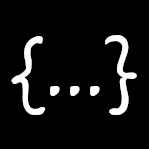If you’re just starting out and wondering how much programming you need to know before applying for your first software developer job, you’re not alone. The journey to landing that first role can seem overwhelming, but it doesn’t have to be. Here, I’ll guide you through the essential skills you need to master, the steps to get there, and how to position yourself for success.
1. Master the Foundations
The first thing to understand is that you don’t need to know everything before you start applying for jobs. However, mastering the foundational skills is critical. For front-end development, the key areas to focus on are:
- HTML: The structure of web pages.
- CSS: Styling your web pages.
- JavaScript: Bringing your pages to life with interactivity.
- ReactJS: A popular JavaScript library for building user interfaces.
These four pillars will cover most of the tasks expected from a front-end developer.
2. Take 1-2 Focused Courses
You don’t need to dive into countless courses. Instead, focus on completing 1-2 high-quality courses. For instance, you could take one course that covers HTML, CSS, and JavaScript, followed by a ReactJS-focused course. Platforms like Udemy offer beginner-friendly options that are both affordable and comprehensive.
Once you’ve completed these, aim to build simple apps independently. The goal is to feel comfortable creating functional features without relying heavily on tutorials.
3. Build Real Projects
After learning the basics, it’s time to apply what you’ve learned by building real-world projects. The best way to do this is through project-based practice. Use APIs available online to build simple apps like:
- A weather app using a Weather API.
- A music player using the Spotify API.
- A restaurant finder using Google’s Places API.
Building these kinds of projects will give you practical skills and confidence in working with real data.
4. Create a Portfolio and GitHub Account
Your portfolio is your calling card, especially when you’re just starting out. Collect the projects you’ve built and display them in your portfolio. Employers want to see what you’re capable of, and a well-structured portfolio is the perfect way to demonstrate that.
Additionally, create a GitHub account and upload your projects there. This will allow potential employers to view your code, helping them understand how you work.
5. Don’t Chase Perfection
Remember, no one expects perfection, especially when you’re starting out. Focus on being able to build functional apps that showcase your ability to code. The more projects you complete, the more confident you’ll become. You’ll continue learning on the job, so don’t wait to be an “expert” before applying.
6. Prepare for Interviews
When you’re ready to apply, start preparing for coding interviews. Practice with beginner-level questions on Leetcode, focusing on popular interview topics for front-end development such as:
- HTML/CSS basics.
- JavaScript fundamentals.
- ReactJS concepts.
Additionally, behavioral questions are common in interviews. Practice the STAR method (Situation, Task, Action, Result) to answer these confidently. Have a few stories prepared about how you’ve tackled challenges or learned new skills.
7. Apply for Jobs Consistently
The job search itself requires consistency. Apply to as many jobs as possible, and don’t get discouraged by rejections. Every interview, coding challenge, and even rejection will contribute to your experience, making you better prepared for the next opportunity.
In short, learning the basics of programming, building real-world projects, and showcasing them in a portfolio is enough to get you started. Keep improving your skills during the job search, and always apply consistently to maximize your chances of landing your first developer role.
Never give up—each failure brings you closer to success!


Leave a Reply